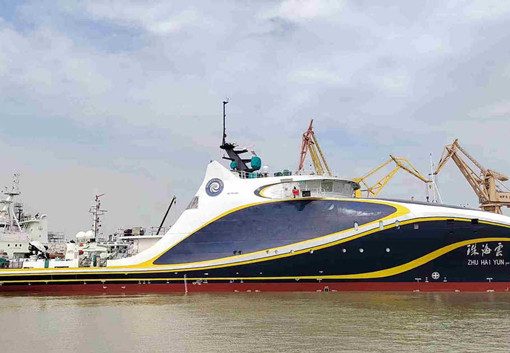Straits Times of Singapore reported on 06 July that the Chinese government has for the first time told Washington that it considers the South China Sea to be part of its ‘core interests’. The use of this term indicates that that Beijing asserts sovereignty over the South China Sea, which puts this claim on a par with Taiwan and Tibet. The report also states that the new Chinese policy was conveyed to senior American officials in March.
China and the United States have long been engaged in mutual recriminations about naval activities in the South China Sea. Recent announcements by the USN of a carrier battlegroup deployment for a military exercise with South Korea in the Yellow Sea has drawn protests from General Ma Xiaotian, Deputy Chief of the General Staff of the PLA. Last Thursday, he said: “Since it is in the Yellow Sea, it is very close to China’s waters. We are very opposed to such a drill.” In a display of determination to defend its interests, the Chinese military later announced it would conduct live firing in the East China Sea.
One possible motivation for the Chinese claim can be found in a reported statement by Mr. Wu Shicun, Director of the South China Sea Institute of Oceanology at the Chinese Academy of Sciences, that China has found more than 200 oil and gas bearing blocks and 180 oil and gas fields in the South China Sea. This is a development of strategic importance.
China’s dependency on maritime trade routes to import 40 percent of its crude oil supply is the subject of a major article by Prof. Andrew Erickson of the China Maritime Studies Institute at the U.S. Naval War College and Mr. Gabriel Collins entitled “China’s Oil Security Pipe Dream” in the Spring 2010 issue of Naval War College Review. Almost all overland pipeline routes are assessed to be “simply unviable from nearly all perspectives.” The article suggests the positive aspect of this situation is that it practically forces China to engage in the international market system and may induce them to participate in international regulating and reporting organizations. Such a newfound faith could deemphasize the need for a major naval expansion and reduce the likelihood of counterbalancing moves by nations “discomfited by such ambitious Chinese naval growth.” The presence of so much oil and gas within easier reach will undoubtedly induce the Chinese to continue to develop a naval capability. But, could the new discoveries result in a navy that is more of a regional force and less of a blue-water fleet?
Based on the long-standing American policy of 'Freedom of Navigation', it seems likely that future naval activities will take place in all of the claimed ocean areas and that the potential for a conflict ‘flash point’ is likely unless cooler head prevail. [See the post by Bonnie Glaser and Brad Glosserman under Topic # 61, The Cheonan Incident, for an analysis of the problems presented for China by the sinking of ROKS Cheonan.]




